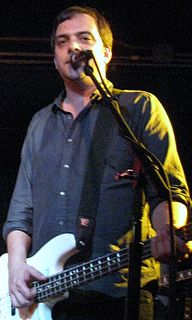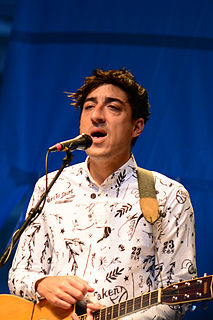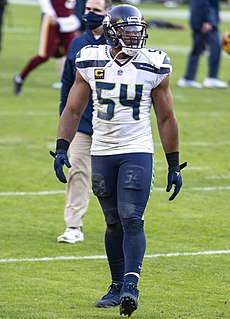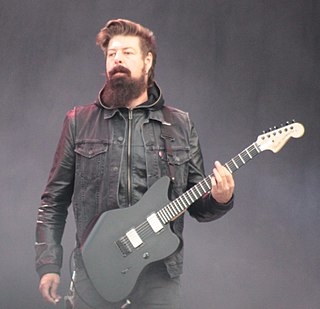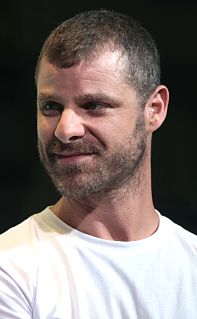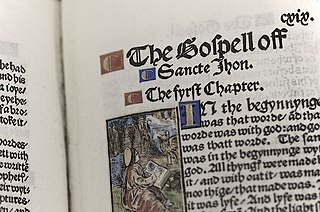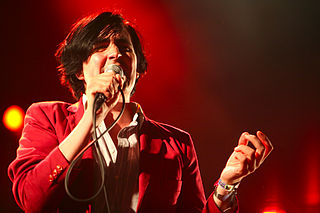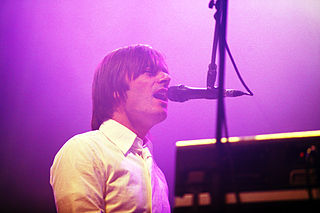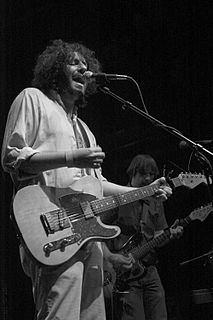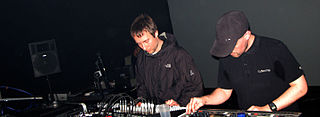A Quote by Adam Schlesinger
I think ultimately what you really want is a few people within any label that are into the band enough to really work on it every day for a long time and to actually try a little bit. But obviously, the major labels have more money to spend, so if they feel like spending it, they have bigger resources there when you need them. It doesn't always necessarily translate into them doing a better job for a band, but I think especially if you're playing the game of commercial radio and making videos and stuff like that, that's sort of an expensive proposition.
Quote Topics
Actually
Always
Any
Band
Better
Better Job
Bigger
Bit
Commercial
Day
Doing
Enough
Every
Every Day
Expensive
Feel
Few
Few People
Game
Job
Label
Labels
Like
Little
Little Bit
Long
Long Time
Major
Making
Money
More
More Money
Necessarily
Need
Obviously
People
Playing
Proposition
Radio
Really
Resources
Sort
Spend
Spending
Stuff
Them
Think
Time
Translate
Try
Ultimately
Videos
Want
Within
Work
Related Quotes
I feel like there's not as many bands anymore. It's more like there's a front-person and a band supporting them, solo-type spirits that have a look, a vibe, a message, a voice and a style. I was talking about it with a journalist in Europe; he was like, "You're a democracy; everyone in the band does stuff." There's not a lot of bands I can think of that still have it so every member of the band has an equal say. I was like, dude, you're right. I can't really think of any right now. There might be one or two leaders in them, but there are not a lot of bands like that anymore.
This is going to sound really corny, but it's the way I feel: Musicians have been around for a really long time. It's a really, really old job. When you look at the way that a small band toured back in the '50s, it's similar to the way that a small band tours now. It's been this long tradition, and when you meet somebody who has been doing this for a really long time, you have to have tremendous respect for them.
If you're working with a band and you really want to work them into the episode, you've got to say to them, "Look, we need you around every day and on Tuesday night all night because we need you to do voices as we're changing stuff." We do the show so quickly, and you just can't get bands to do that. It's not really fair.
I'm seeing myself as an outsider a little bit - definitely when I started the band. I knew what band's name meant and nobody else really did, so I'd be on stage every night and say, "Hello, we're Art Brut" - basically saying that we were rejects. But I mean, I didn't really sing, it did feel a bit like we were outsiders. It was a bit tongue-in-cheek when I first named the band that, but then we slowly turned into that - like a self-fulfilling prophecy.
I've honestly always been an overly analytical, highly observant person. I was playing music but thinking about it at same time, which was sort of exhausting. Aside from the pain of writing - you're not really in a gang like you are in band, it's a little bit lonelier - I think it was always something that I'd wanted to do. So the transition wasn't abrupt or painful.
I was 21, and I was like, "Man, am I really gonna start over and try this whole thing over again? Do I want to start over and be in a rock band again and try to act like a 17-year-old for as long as I can?" Because that was what I was doing with Simon Dawes band. I decided that if I was going to go on playing music, I was going to try and work on it. So I got into Leonard Cohen and Will Oldham, guys that really inspired me not only as songwriters but also through their music as people, and that's kind of what the shift was for me.
I love religion. I could make up religions all day. I sort of think that in an ideal world I'd like to be a religion designer. I'd like people come up to me and say, I need a religion. I'd go talk to them for a while, and I'd design a religion for them. That would be a great job. There's a need for people like that. Fortunately, seeing that one can't actually do it, I get paid for sort of making them up anyway.
We like the ambiance and atmosphere, and we felt really early that... I mean, of course, Air is an electronic band, but we are doing so many real recordings and the studio is so important for the sound. The acoustics create atmosphere and emotion. Also we want to be independent, we don't want to be obliged to go into a commercial studio and only stay one week because it's really expensive. We want to be able to give a chance to a song, and to spend a lot of time in the studio.
I certainly didn't predict people who spent years actively disliking the band to all of a sudden like the band. That's pretty funny to me, and it makes playing live kind of interesting, 'cos we're doing lots of things that don't really have a lot to do with that record, and even presenting the songs off that record in a way that's a little more muscular and without as much of the sheen, which is what I think part of what people really liked [about Kaputt].
All those experiences were a chance to learn more about music. Playing with the Valley band is like such a "live" band. I mean, really, in many ways Bright Eyes is really a studio project. We form bands to tour, but it really is - you know, we take the songs and we figure out how to decorate them and it's all in the studio, we build the songs that way. Whereas Mystic Valley Band was the exact opposite, where everybody knows what they are gonna be playing on the song and there's sort of a general stylistic approach, and then it's just plug in and play.
Anything was better than going to work. All those early tours before we made any money were more like vacations. I don't think it was until 2001 that we pulled our heads out of the sand and were like, "What are we doing?" I don't think Chris realized he was in a band until 2001. He all of a sudden woke up one day and realized he was in a band. He thought he was just recording my solo project. Three albums later, we're in Baltimore trying to figure out what to do with ourselves.
